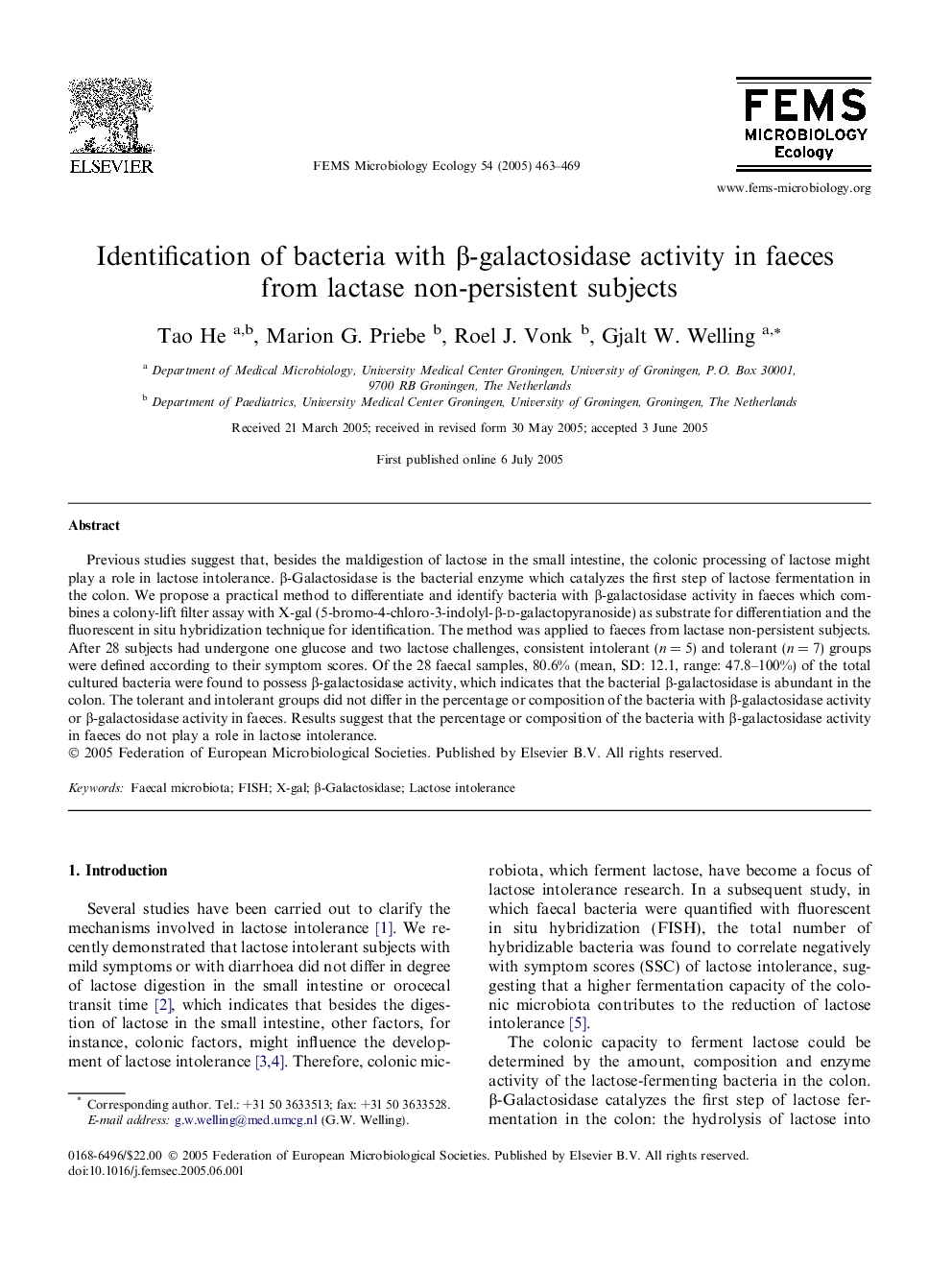| Article ID | Journal | Published Year | Pages | File Type |
|---|---|---|---|---|
| 9437622 | FEMS Microbiology Ecology | 2005 | 7 Pages |
Abstract
Previous studies suggest that, besides the maldigestion of lactose in the small intestine, the colonic processing of lactose might play a role in lactose intolerance. β-Galactosidase is the bacterial enzyme which catalyzes the first step of lactose fermentation in the colon. We propose a practical method to differentiate and identify bacteria with β-galactosidase activity in faeces which combines a colony-lift filter assay with X-gal (5-bromo-4-chloro-3-indolyl-β-d-galactopyranoside) as substrate for differentiation and the fluorescent in situ hybridization technique for identification. The method was applied to faeces from lactase non-persistent subjects. After 28 subjects had undergone one glucose and two lactose challenges, consistent intolerant (n = 5) and tolerant (n = 7) groups were defined according to their symptom scores. Of the 28 faecal samples, 80.6% (mean, SD: 12.1, range: 47.8-100%) of the total cultured bacteria were found to possess β-galactosidase activity, which indicates that the bacterial β-galactosidase is abundant in the colon. The tolerant and intolerant groups did not differ in the percentage or composition of the bacteria with β-galactosidase activity or β-galactosidase activity in faeces. Results suggest that the percentage or composition of the bacteria with β-galactosidase activity in faeces do not play a role in lactose intolerance.
Related Topics
Life Sciences
Environmental Science
Ecology
Authors
Tao He, Marion G. Priebe, Roel J. Vonk, Gjalt W. Welling,
